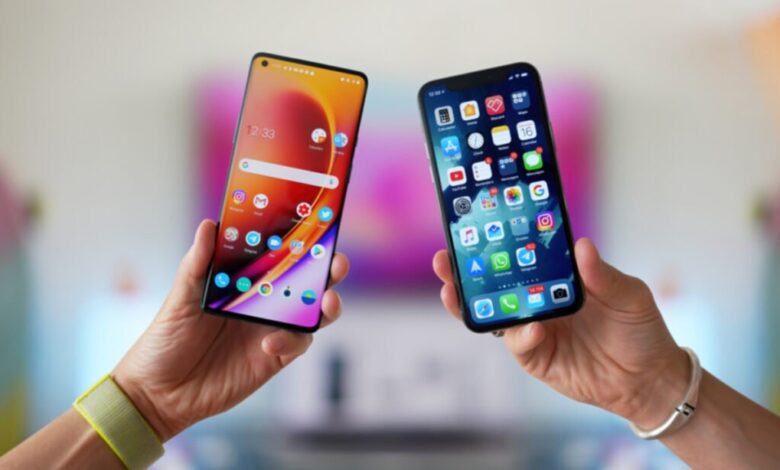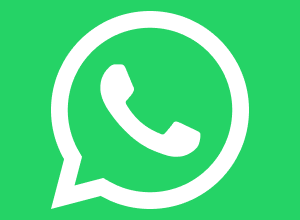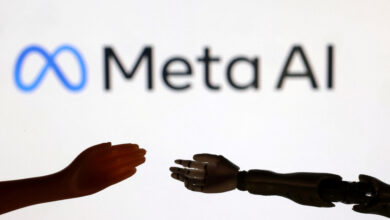India to develop a home grown OS to compete with Android and iOS
The Ministry of State for Electronics and IT, announced on 25 Jan that the government is looking to facilitate the creation of an Indian operating system (OS) to rival companies such as Apple Inc. and Google LLC.

The Indian government is currently searching for optimal new companies and academic foundations that are fit for fostering another OS. Definite conversations are right now zeroing in on building up clear objectives for the task, which will be trailed by regulation to target explicit advancement points. Rajeev Chandrasekhar implied that new businesses and organizations chipping away at an Indian OS might be alluring to homegrown and unfamiliar speculation when raising capital.
The undertaking finds a place with Prime Minister Narendra Modi’s plan to make homegrown pioneers across various ventures and item classes, just as reinforce the country’s innovation industry. The Indian government has uncovered a guide to accomplish $300 billion worth of hardware fabricating in the country by 2026, up from $75 billion as of now. In like manner, the nation desires to accomplish $120 billion in gadgets sent out, up from $15 billion as of now.
The thinking among the business and states across the world is that innovation goliaths like Apple and Google employ too much command over the web environment as they own the working frameworks that sudden spike in demand for the present cell phones and PCs. As per most market assessments, Apple’s iOS and Google’s Android represent close to 100% of the world’s cell phone market. They additionally have Chrome OS and macOS stages, separately, which run on PCs. Command over these stages provides them with a level of control on how applications are made, information streams, information sharing, and that’s just the beginning. This control is additionally at the centre of numerous enemy of trust cases.
Essentially, an OS that falls under the domain of the Indian government can be customized to its arrangements all along. Approaches being formed around innovation today need to consider worldwide guidelines like the European General Data Protection Regulations (GDPR). Such an OS could likewise have suggestions for the startup environment, which has since quite a while ago griped about the charges Google and Apple demand for selling applications and administrations through their application stores. In conclusion, an OS could be utilized by the public authority to mine information about the nation’s residents and utilize that for different purposes.
Jack Gold, principal analyst at J. Gold Associates, said that while its laudable India is trying to create a competitor and launch more tech industries within the country, “it’s very unlikely that it can produce a true competitor to Android especially and also iOS.”
This is not India’s first attempt to create its own operating system nor would the country be the first to attempt it now, Gold noted. For example, China’s Alibaba Group developed a local-services arm and debuted the “Alibaba Local Services Operating System.”
“Since [China has] a huge population base, much like India does, they thought it could be a real game changer for the local market,” said Gold. “But the truth is, most users of smartphones are drawn to specific apps they use regularly (e.g., Facebook, TikTok, Instagram, Twitter, etc.), and if those apps aren’t available on the OS powering a specific device, then users won’t buy it.
“That’s not to say that a localized OS for lower-end devices can’t grab some market share,” he said, “but as a general rule, it’s highly unlikely that you can change the dynamics of users wanting to interact with specific apps — and if they aren’t available on your device, then they won’t want it.”
Additionally, there’s no incentive for major app vendors to port their apps to a locally created OS, Gold said, noting there just isn’t enough volume to do so.
“So, it’s a chicken and egg situation – apps don’t get ported due to low volume of devices, and people don’t buy the devices due to lack of popular apps. This is what caused the downfall of BlackBerry, Symbian, WebOS, etc.,” Gold said.
In 2010, India’s administration attempted to make another PC working framework with the end goal of improving the security of its PC frameworks.
Concerning the most recent push, Chandrasekhar said fostering an Indian OS would not just “make an option in contrast to iOS and Android,” however like the last OSes, the stage could drive a local handset equipment market.
The chance of a new OS outcompeting the current ones are interesting, however with the push from the public authority, it tends to be a distinct advantage. China likewise has native choices to google, WhatsApp, Facebook and Twitter so I see a likelihood that it can match the current ones with legitimate government support.



